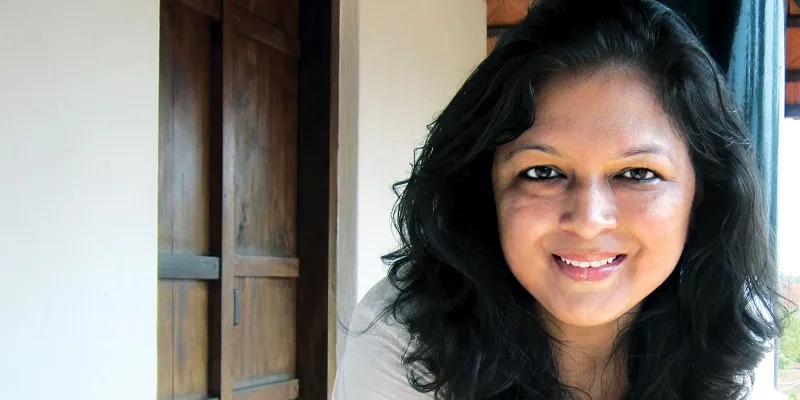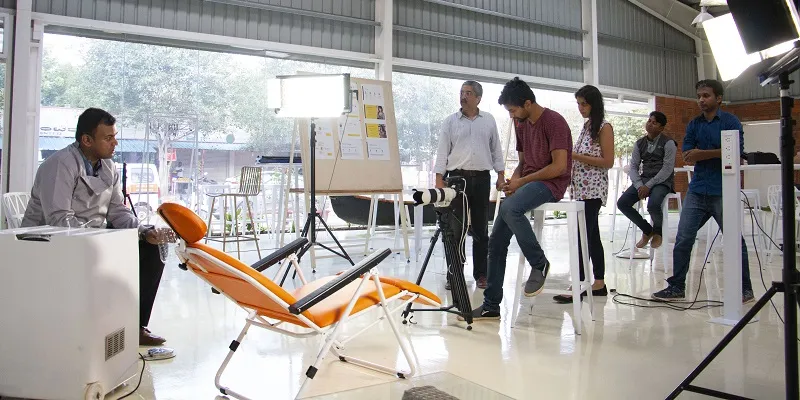With Spread’s design thinking methodology, businesses can quickly adapt to digital and physical transformation
Three years since its inception, this Bengaluru based company will achieve Rs 18 crore in revenues and works with a clutch of investors and designers to scale up design projects.
When a company is looking at a complete overhaul of its product offering and brand strategy, it is often confronted by huge investments in time and money.
This is where ‘design thinking’ as a concept has gained momentum in the past few years. In simple terms, it applies design methodology to brainstorm creative solutions to problems that are not just confined to design.
So, say, an established jewellery brand that has been serving women over 40 for decades wants to pivot and grab a slice of the college and young working women pie, it has to rethink its business processes, manufacturing capabilities and brand positioning and recall strategies. This can be an expensive exercise that smaller companies cannot afford, but startups like Spread have come to their rescue.
Set up in October 2015 by Girish Raj Nair, Mohammad Javed and Sonia Manchanda, Spread stands as a testimony to the founders’ love for and belief in affordable design thinking. Friends for over 20 years, the trio worked together previously at Idiom, another design-led startup, but were spurred by the lack of an efficient platform to bring together designers and business process owners to set up Spread. The firm streamlines design projects and offers them to its network to execute, with Spread managing the process end to end.

Infusing human experience
A team of designers, filmmakers, technologists, and artistes come together to work on projects for large corporates wanting to change their business with design thinking. While companies get access to a range of experts on one platform, designers who hitherto worked mostly on word-of-mouth basis score lucrative projects that enhance their portfolio.
Co-founder Sonia highlights Spread’s USP: putting human experience at the centre. “We felt the need to create a new and nimble model of design firm – a transdisciplinary one that integrates design, new technologies and media, enabling the industry and leaders in governance to expand possibilities, by shaping disruptive ideas, businesses and brands,” she adds.
At its heart, Spread is an external design think tank and partner for private and public sector leaders to design, build, and spread their vision with skill, speed and imagination. It adopts virtual reality, augmented reality and drone technology to deliver projects.
Design thinking is, historically, not an inexpensive undertaking. According to IBM, firms can spend upwards of $500,000 on approaching design thinking processes. Be it to energise sluggish project design, or refine business strategy and mitigate bad investments, or just to design better products that enhance customer experience and, by extension, drive sales, design thinking has been used in many cases to stop, take stock, and pivot to drive better outcomes.
Businesses spend a lot of money on hiring in-house design thinking resources. But here’s the catch: not all companies have the resources which anyway end up focusing only on one or two design avenues, such as brand design, packaging, interaction and architectural-experience design, while others lag behind. Sometimes, smaller companies seek the help of design thinkers, who often help with developing the solution but not at executing it. “Nobody takes ownership of the execution. A small firm struggles because of this,” says Sonia, adding that this can be an impediment to the speed of changing the business.
Seeing the potential, the founders bootstrapped Spread into existence with Rs 2 crore. They have over 40 designers, software makers and artists working on micro projects.
Today, three years later, and with 100 projects under its belt, Spread will take in Rs 18 crore in revenue for the year financial year 2019 and has not sought external funding so far.
Once a company signs up with Spread, it breaks down the components of the design engagement and assembles a mutlidisciplinary team of stakeholders such as storytellers, actors, script writers, and software builders to deliver the project. The founders will bring the businesses in and guide the design strategies. It works on a time and materials model and an average project sets a company back by $50,000-$100,000.

Driving innovation through design thinking
Spread is facilitating the development of strategies and solutions across mediums and challenging terrains.
It has executed projects for the National Highways, Spread designs the packaging of all innovations and initiatives. Spread is making national highways people friendly.
Spread has worked in education, retail, healthcare, and governance as well. It drove the design experience for Zeven, the sports retail business owned by tennis star Mahesh Bhupathi and Hemchandra Javeri. Over the last two years Spread worked with Krishna Byre Gowda – former Minister of Agriculture, to create a campaign that supported the resurgence of millet consumption in Karnataka by designing the entire brand communication.
“Design thinking is the way forward. It is essential to understand the DNA of every aspect of the product and Karnataka’s millet programme’s success was because of the way we presented millets as a healthy option. It included designing the packaging too,” says Gowda, who is now the state Minister of Rural Development.
A future of design thinking
Spread wants to increase its engagement to over 1,000 projects in two years, aiming to become the storyteller of design thinking in India. Today, it competes with the likes of Infosys and Wipro, which are implementing design thinking for their clients. IBM and Cognizant are some of the larger companies in design thinking business processes.
The market size for design thinking is difficult to establish because it focuses on transformation and is part of the digital engagements for several companies. Digital transformation, according to Markets and Markets, is a $500 billion market by 2022, which means it is a market for everybody.







